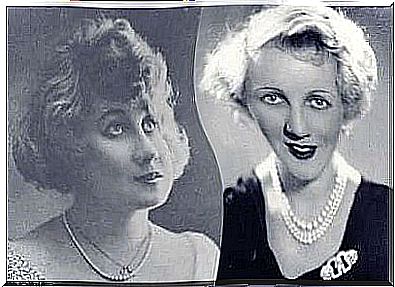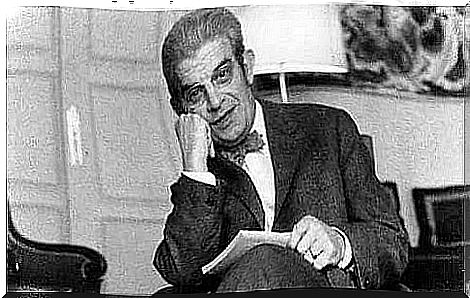The Aimée Case Or Self-punishing Paranoia

The Aimée case is one of the most well-known cases in the psychiatric and psychoanalytic disciplines. There are two reasons for this. The first is that it was this case that was the basis for proving that Jacques Lacan’s dissertation was correct. The second is that the case represented a major breakthrough in the studies of paranoid psychosis.
Jacques Lacan is probably the most famous psychoanalyst after Sigmund Freud. His research represents a clear step forward for classical psychoanalysis. The Aimée case was the study that made him known as a new and clairvoyant thinker in this field.
The Aimée case is also known for the controversy that arose due to the methods used in the treatment and how it was presented to the scientific community. It also made headlines because of the consequences it had. This is without a doubt an exciting chapter in the history of mental health.

Marguerite Pantaine, Lacans Aimée
Marguerite Pantaine went down in history as the “Aimée” itself. This was the name of one of the characters in a novel she wrote. That was also the name Lacan gave her in her dissertation. She was a Catholic woman from a French peasant family, who at the age of 28 allegedly felt that she was being persecuted.
This started during her first pregnancy. She thought it was people who wanted to hurt her, and developed violent behavior. She had a miscarriage and was convinced that her friend was to blame.
Eventually she got better, but during her second pregnancy she felt again that she was being persecuted. Because of this, she did not allow anyone else to look after her son Didier until five months into his life.
Her delusions increased, and as a result she was admitted to a psychiatric hospital. After being released, she lived alone in Paris. There she began to believe that a young actress, Huguette Duflos, was one of those who wanted to harm her son.
She even wrote letters about her suspicions to the Prince of Wales. Finally, in April 1913, Marguerite attacked the young actor with a knife, and was arrested.
The interesting development in the Aimée case
After assessing her mental health, psychologists sent Marguerite to a psychiatric hospital in Santa Ana. This is where Jacques Lacan treated her for a year and a half. Marguerite’s symptoms disappeared from the moment she arrived at the hospital, which led Lacan to conclude that she was suffering from “self-punishing paranoia”.
In other words, she was in better shape from being punished. She suffered from an unconscious guilt, and after the deprivation of liberty, she no longer needed the delusions.
The Aimée case had a strange development, and a strange end. Marguerite’s situation fascinated Jacques Lacan. Her nickname “Aimée” actually means “loved” in French. It may be strange that he chose to call her this, since he did not have a romantic relationship with her, but through her situation he found the key to further work on one of the actions he wrote about psychosis.
Marguerite wrote novels no one dared to publish. During the treatment, she gave her works to Lacan, who never returned them. Ironically, she later became famous because of Lacan’s studies.
From the very beginning of the treatment, Marguerite thought that someone would steal her texts. She accused author Pierre Binot of stealing her ideas.

An unexpected end
According to Jacques Lacan, Marguerite’s cure was to be punished for the attempted murder of Huguett Duflos. Some of the delusions came back later, but they did not create major problems in her life anymore. She was not admitted to a psychiatric hospital several times, which confirmed Lacan’s theory.
What is surprising when it comes to this story is that Marguerite’s son Didier later became a psychoanalyst. In his autobiography, he suggested that his mother felt very lonely as a result of her condition. Not knowing that the famous Aimée case was about his mother, he went to Lacan’s office for a psychoanalysis.

After becoming suspicious of the similarities between the Aimée case and his mother, he discovered that “Aimée” and his mother were the same person. He then complained that Lacan had not told him this.
Didier tried to get his mother’s novels back, but did not succeed. The story still has a pleasant ending, because even though he never got to read his mother’s works, he himself ended up becoming a writer.









